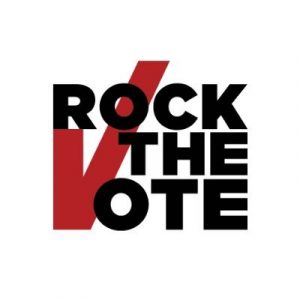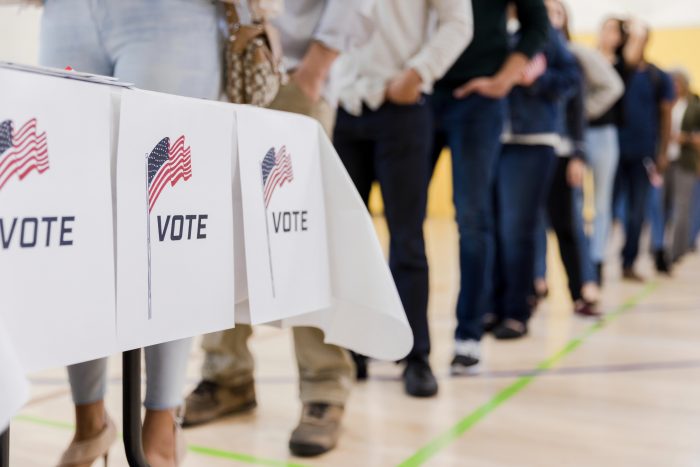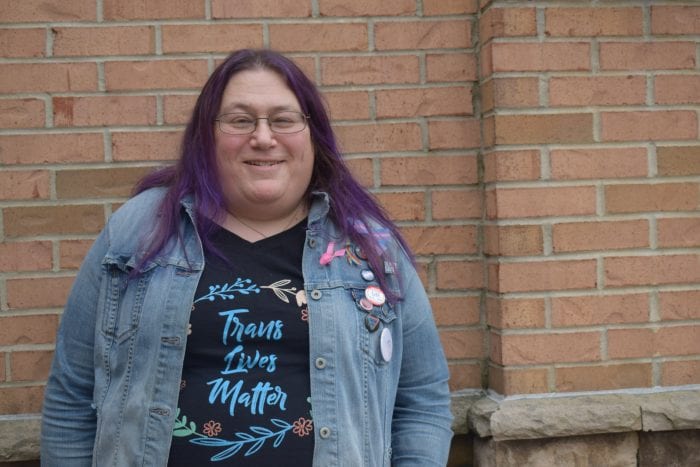By Nancy Marr
Did you know that almost half of America doesn’t vote, even in presidential elections? Elections for state and county officials, school board members, and fire department members have even fewer voters.
Our primaries that are scheduled for August 23 will be open only to those registered in a party, and even those may not vote. The will of the people is reflected in the results of elections. In an effort to get 100% participation in our elections, groups like the League of Women Voters are supporting same-day registration (already in place in 23 states).
Concerned about the low percentage of voters, Miles Rappaport and E. J. Dionne have written 100%: The Case for Universal Voting. They relate the experience of Australia, which requires all citizens to vote, just as we require all citizens to perform jury duty; they suggest ways of automatically registering voters, as we now do with the Department of Motor Vehicles.
In 2022, Get Out The Vote efforts must be stronger, louder, and even more creative. We can register millions, but if only thousands vote, have we truly empowered voters?
When the country was founded, voting was not secret, and the men who were eligible to vote, by virtue of race and sex and income, met in public to decide who they would choose. Nowadays, everyone 18 years or over is legally entitled to vote, and can vote privately, although some are prevented from casting their ballots by suppressive state legislation.
 Data from The American Presidency Project at U.C. Santa Barbara shows that 67% of eligible voters voted during the pandemic in the U.S. presidential election of 2020, but it was a record high compared with earlier elections (the election in 2012, for instance, had votes from 54.9 percent of the eligible voters).
Data from The American Presidency Project at U.C. Santa Barbara shows that 67% of eligible voters voted during the pandemic in the U.S. presidential election of 2020, but it was a record high compared with earlier elections (the election in 2012, for instance, had votes from 54.9 percent of the eligible voters).
In 1965 the Federal Government’s Voting Rights Act acknowledged the need to protect the rights of all to register and vote, especially in states where there had been racial discrimination, although that protection was weakened in 2013 by the U.S. Supreme Court in Shelby vs. Holder.
Reaching potential voters has become more difficult as our population has become more transient, which has led many voter rights organizations to increase their efforts to find new ways to appeal to voters. Rock the Vote was founded in 2010 to recruit potential voters on beaches, targeting youth aged 18 to 24 who represent the citizens least likely to vote. (Adults over 65 are the most likely to vote.) Training volunteers as “captains” to canvass their social networks of friends and neighbors is effective, with a follow up to answer any questions and provide support. Many groups enlisted volunteers to make phone calls to a list of registered voters. They found that a personable, non-rigid manner increased the turnout, especially if they went off-script and sounded like a real person, not a robot.
Working to get out the vote is something we can all do. On your own, with your family and friends and neighbors, you can ask them to plan to vote by asking them when they plan to vote and how they plan to get there. (In a campaign to encourage people to vote, it is important to remain neutral and nonpartisan, refraining from expressing your view about the best candidates.)
If you would like to do more, visit the League of Women Voters of New York’s website lwvny.org/league-toolkits/ Click on GOTV toolkit, or Voter Registration Drive toolkit.
Rock the Vote (www.rockthevote.org) focuses on getting young people to vote, and Glaad (www.glaad.org/vote) focuses on LGBTQ people and their allies. Both welcome volunteers and can provide information about voting dates and places. If you wish to support a particular candidate, contact their campaign office to offer to make phone calls. We need to reach citizens in every part of the country to be sure their views are represented.
As our population changes demographically, it is especially important for everyone to learn to work together to create and maintain a healthy society, beginning with our participation in elections.
Nancy Marr is Vice-President of the League of Women Voters of Suffolk County, a nonprofit nonpartisan organization that encourages the informed and active participation of citizens in government and influences public policy through education and advocacy. For more information, visit www.lwv-suffolkcounty.org or call 631-862-6860.






